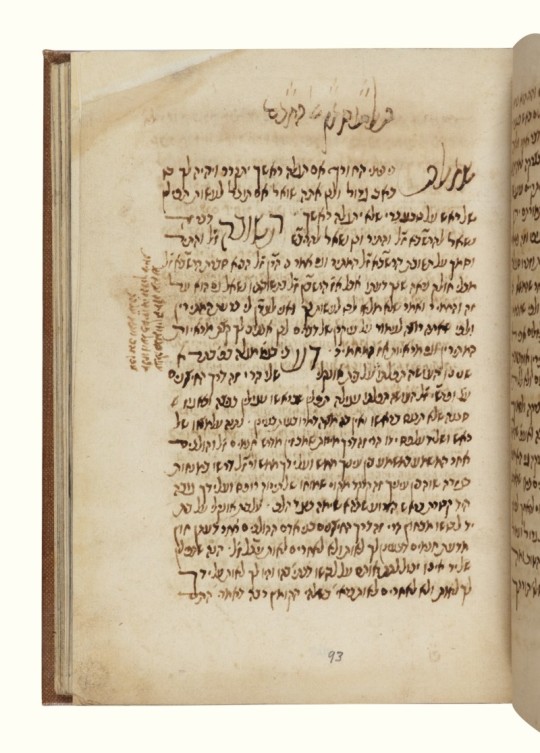#rabbi abraham ben jacob ibn tawwah
Explore tagged Tumblr posts
Photo

Sefer Nofekh (responsa), Rabbi Abraham ben Jacob ibn Tawwah, Algiers, 16th century
Rabbi Abraham ben Jacob Ibn Tawwah (d. after 1551) was a prominent halakhist, yeshiva dean, preacher, cantor, and liturgical poet of Catalonian extraction based in Algiers. He was a descendant of both the Spanish Rabbi Moses Nahmanides (1194-1270) and the Majorcan-Algerian Rabbi Simeon ben Zemah Duran (1361-1444).
This manuscript, entitled Sefer Nofekh, origninally contained one hundred fifty (the numerical value of the word nofekh spelled without the vav) of his responsa, copied in his hand and, in several cases, signed by him with his distinctive signature: “The most humble descendant of Adam and Eve [Hawwah], Abraham ben Jacob Ibn Tawwah, of blessed memory.” (The manuscript is currently missing thirty-one of the responsa: numbers).
Sefer nofekh not only covers many topics in ritual law but also treats personal status and business law questions. Its pages preserve questions received from Fez in Morocco, Djerba in Tunisia, and several cities and towns in Algeria (Algiers, Tlemcen, Oran, Miliana, Constantine, Médéa, Ouargla/Mzab), especially those that had no local halakhic authority. In his answers, Ibn Tawwah traced the sources of Jewish law from the Talmud to contemporary times, objected to excessive stringency, defended established communal practice, and worked hard to minimize conflicts between members of a community. The book’s essays thus shed much light on the history and socio-religious culture of North African Jewry in the critical period following the expulsions from the Iberian Peninsula and open a window onto Ibn Tawwah’s thought, halakhic methodology, and spiritual leadership.
Ibn Tawwah was a lyrical writer, and many of his responsa include rhymed poetic portions. Toward the end of the volume is a collection of the author’s liturgical poetry, in which he displays great expertise in the principles of traditional Sephardic piyyut.
172 notes
·
View notes